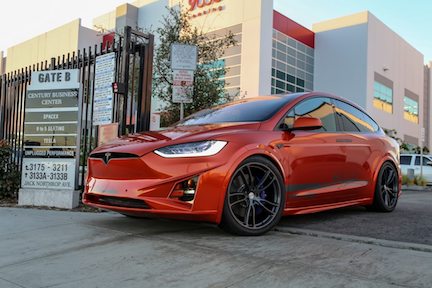Canada is threatening to retaliate with targeted tariffs on U.S. goods if tax incentives for electric vehicles produced by unionized American workers aren’t removed from the Biden administration’s Build Back Better Act.
The threat—a significant escalation in Canada’s message on the issue—was made in a letter Friday to U.S. lawmakers by Canadian Deputy Prime Minister Chrystia Freeland and Trade Minister Mary Ng. They say Canada is prepared to publish a list of potentially targeted goods “in the coming days” if the matter isn’t resolved.

If the provision stays in the bill, Canada “will have no choice but to forcefully respond by launching a dispute settlement process under the USMCA and applying tariffs on American exports in a manner that will impact American workers in the auto sector and several other sectors of the U.S. economy.”
The ministers also said Canada “would consider the possible suspension of USMCA concessions of importance to the U.S. in return,” and specifically mention measures on dairy and copyright.
The letter was sent to eight U.S. senators including Chuck Schumer, Mitch McConnell, Ron Wyden, Bob Menendez and Joe Manchin.
By threatening to retaliate on American goods, Canada is now publicly in line with Mexico, whose economy minister had made a similar threat last week.
The version of Biden’s $1.75 trillion Build Back Better Act that was approved by the U.S. House calls for all automakers to be able to offer $7,500 to consumers for EV purchases for the first five years of the law, a win for Tesla Inc. and General Motors Co., which have already exceeded the existing, 200,000-vehicle cap after which their customers no longer get credits.
However, cars made in the U.S. by union-represented workers would be allowed to offer an additional $4,500 in credits according to the House bill. Tesla and foreign-owned automakers such as Toyota and Honda Motor Co. have argued that would give an unfair advantage to Detroit automakers as the industry races toward an electric future.
The Canadian ministers said Biden’s proposal equates to a 34% tariff on Canadian-assembled electric vehicles.
There is still plenty of uncertainty around the bill. The Senate parliamentarian is reviewing provisions—including the EV tax credit—to see if they’re in compliance with legislative rules governing budget bills. Political wrangling could also delay a vote into the new year.











